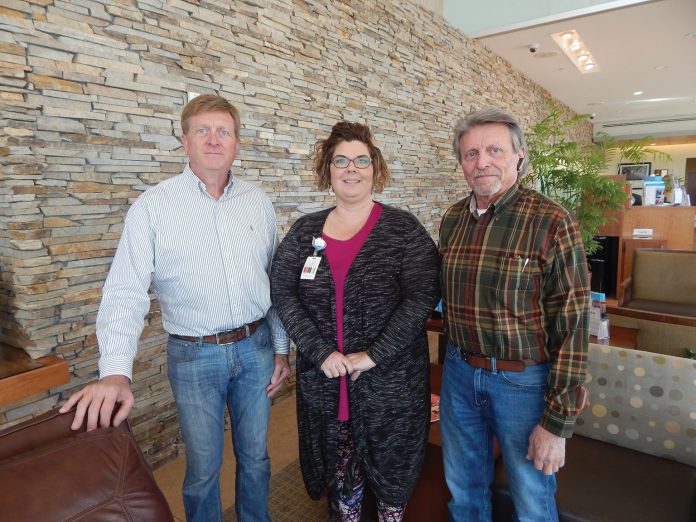
by James Coburn
Staff Writer
Michael Buettner said he felt a sense of belonging when he first walked in the door of the ProCure Proton Therapy Center in Oklahoma City. The Missouri pastor needed treatment for prostate cancer.
Soon he was the second of his brothers to be diagnosed. Harlan Buettner would also be diagnosed with prostate. Neither brother had experienced symptoms of prostate cancer, but their treatment at ProCure was a life saving measure, they said.
What makes ProCure Proton Therapy Center in Oklahoma City different from anybody else is it can make its proton radiation beam stop on a dime, said Shannon Bullock, RN. Proton beams can be directed to any part of the body in need of cancer treatment, she said.
“We can come in at multiple, different angles,” Bullock said. “It goes in and hits the area we want it to without hitting the areas we do not want it to. So we can salvage healthy tissue in the process.”
ProCure opened as the only proton therapy center in Oklahoma in 2009, the same time Bullock was hired. She has stayed because of the rapport she builds with each patient.
“You don’t just see them and then they’re gone,” she said. “You see them for a good period, and then you continually see them with a follow-up. We have a lot of good outcomes. So that makes it nice to see the difference we can make in people’s lives.”
Bullock said most of the nurses at ProCure work for one or more doctors. They gather a patient’s data by accessing records from other physicians. Nurses also set the patient up for a consultation with the physician.
“We do what the physician needs us to do whether it’s getting more data from them, get more records,” she said. “We schedule them for any procedures they need to have done prior to treatment.”
Bullock monitors her patients once treatment begins on a weekly basis, but she is available every day for patients who need to speak to her. Nurses are there for emotional support. They check patients’ skin to note any problems with the treatment.
“Most do very, very well and, we just take care of their needs throughout treatment. We also see them and follow-up for many years,” she said.
The nurses get to know patients such as the Buettner brothers. Michael, 67, and his wife have eight adopted children and two biological children. They were adopting two of their children, ages 3 and 5.
Michael had a PSA test and was sent to a neurologist who ordered a biopsy.
“The joy of that was that part of the journey, the doctor called back to the house; I wasn’t there and he said, ‘Is Mike there?’ And she said, ‘No.’ He said, ‘Tell him I’ve got bad news. Have him call me.”
“There’s nothing like that to make your day because I knew that meant I had cancer,” Michael said.
He was stressed out because as a pastor, he had known a lot of people who had battled cancer. At first he thought his life was over. Michael was told if he has any brothers, he better contact them because they also needed the test.
ProCure set up an appointment for himself quickly, Michael said.
“Here, it was like family,” Michael said. “You belonged when you walked in the door. And from the front door to the doctors, to the nurses, to the therapists – it became like a family thing. It was awesome.”
One thing Harlan liked when researching ProCure was nobody tried to push the ProCure option on him, he said. In discussing his options with a ProCure physician, he was told to investigate all options.
He said ProCure was his best option. And he was able to keep managing his roofing business because he experienced minimal side-affects. He finished his 44th proton treatment in December.
“They accommodated my schedule.”
Other than a slight change of skin color where he was marked for the beam, Harlan had no symptoms of treatment.
Bullock said being a nurse enriches her life because she sees the the difference she makes.
“I get to see people who are sick become well,” she said. “I get to see children go from not being able to walk to laughing and engaging with us and becoming a new person.”
“These men who had prostate cancer were worried and now they can go on and live life without feeling like they’ve got something hanging over their heads.”












